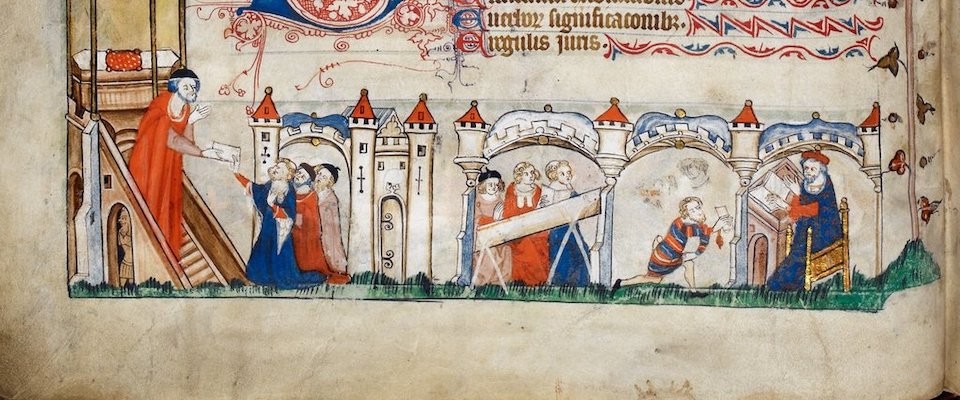- Feb 5, 2002
- 166,683
- 56,293
- Country
- United States
- Faith
- Catholic
- Marital Status
- Married
- Politics
- US-Others
Imagine if a cardinal of the Catholic Church were to publish an article in which he condemned “a theology of eucharistic coherence that multiplies barriers to the grace and gift of the eucharist” and stated that “unworthiness cannot be the prism of accompaniment for disciples of the God of grace and mercy.” Or what if a cardinal of the Catholic Church were to state publicly that homosexual acts are not sinful and same-sex unions should be blessed by the Church?
Until recently, it would be hard to imagine any successor of the apostles making such heterodox statements. Unfortunately, it is not uncommon today to hear Catholic leaders affirm unorthodox views that, not too long ago, would have been espoused only by heretics. “Heretic” and “heresy” are strong words, which contemporary ecclesiastical politeness has softened to gentler expressions such as “our separated brethren” or “the Christian faithful who are not in full communion with the Catholic Church.” But the reality is that those who are “separated” and “not in full communion” are separated and not in full communion because they reject essential truths of “the faith which was once for all delivered to the saints” (Jude 1:3). Thus, it is deeply troubling to consider the possibility that prelates holding the office of diocesan bishop in the Catholic Church may be separated or not in full communion because of heresy.
Yet both the cases mentioned above would in fact involve heresy, since heresy is defined as “the obstinate denial or obstinate doubt after the reception of baptism of some truth which is to be believed by divine and Catholic faith” (canon 751 of the Code of Canon Law). What, then, constitutes “some truth which is to be believed by divine and Catholic faith”?
According to canon 750,
A person must believe with divine and Catholic faith all those things contained in the word of God, written or handed on, that is, in the one deposit of faith entrusted to the Church, and at the same time proposed as divinely revealed either by the solemn magisterium of the Church or by its ordinary and universal magisterium which is manifested by the common adherence of the Christian faithful under the leadership of the sacred magisterium; therefore all are bound to avoid any doctrines whatsoever contrary to them.
In 1998, Pope John Paul II added a second paragraph to canon 750, which states,
Continued below.

 www.firstthings.com
www.firstthings.com
Until recently, it would be hard to imagine any successor of the apostles making such heterodox statements. Unfortunately, it is not uncommon today to hear Catholic leaders affirm unorthodox views that, not too long ago, would have been espoused only by heretics. “Heretic” and “heresy” are strong words, which contemporary ecclesiastical politeness has softened to gentler expressions such as “our separated brethren” or “the Christian faithful who are not in full communion with the Catholic Church.” But the reality is that those who are “separated” and “not in full communion” are separated and not in full communion because they reject essential truths of “the faith which was once for all delivered to the saints” (Jude 1:3). Thus, it is deeply troubling to consider the possibility that prelates holding the office of diocesan bishop in the Catholic Church may be separated or not in full communion because of heresy.
Yet both the cases mentioned above would in fact involve heresy, since heresy is defined as “the obstinate denial or obstinate doubt after the reception of baptism of some truth which is to be believed by divine and Catholic faith” (canon 751 of the Code of Canon Law). What, then, constitutes “some truth which is to be believed by divine and Catholic faith”?
According to canon 750,
A person must believe with divine and Catholic faith all those things contained in the word of God, written or handed on, that is, in the one deposit of faith entrusted to the Church, and at the same time proposed as divinely revealed either by the solemn magisterium of the Church or by its ordinary and universal magisterium which is manifested by the common adherence of the Christian faithful under the leadership of the sacred magisterium; therefore all are bound to avoid any doctrines whatsoever contrary to them.
In 1998, Pope John Paul II added a second paragraph to canon 750, which states,
Continued below.

Imagining a Heretical Cardinal | Thomas J. Paprocki
Unfortunately, it is not uncommon today to hear Catholic leaders affirm unorthodox views that, not too long ago, would have been espoused only by heretics.
